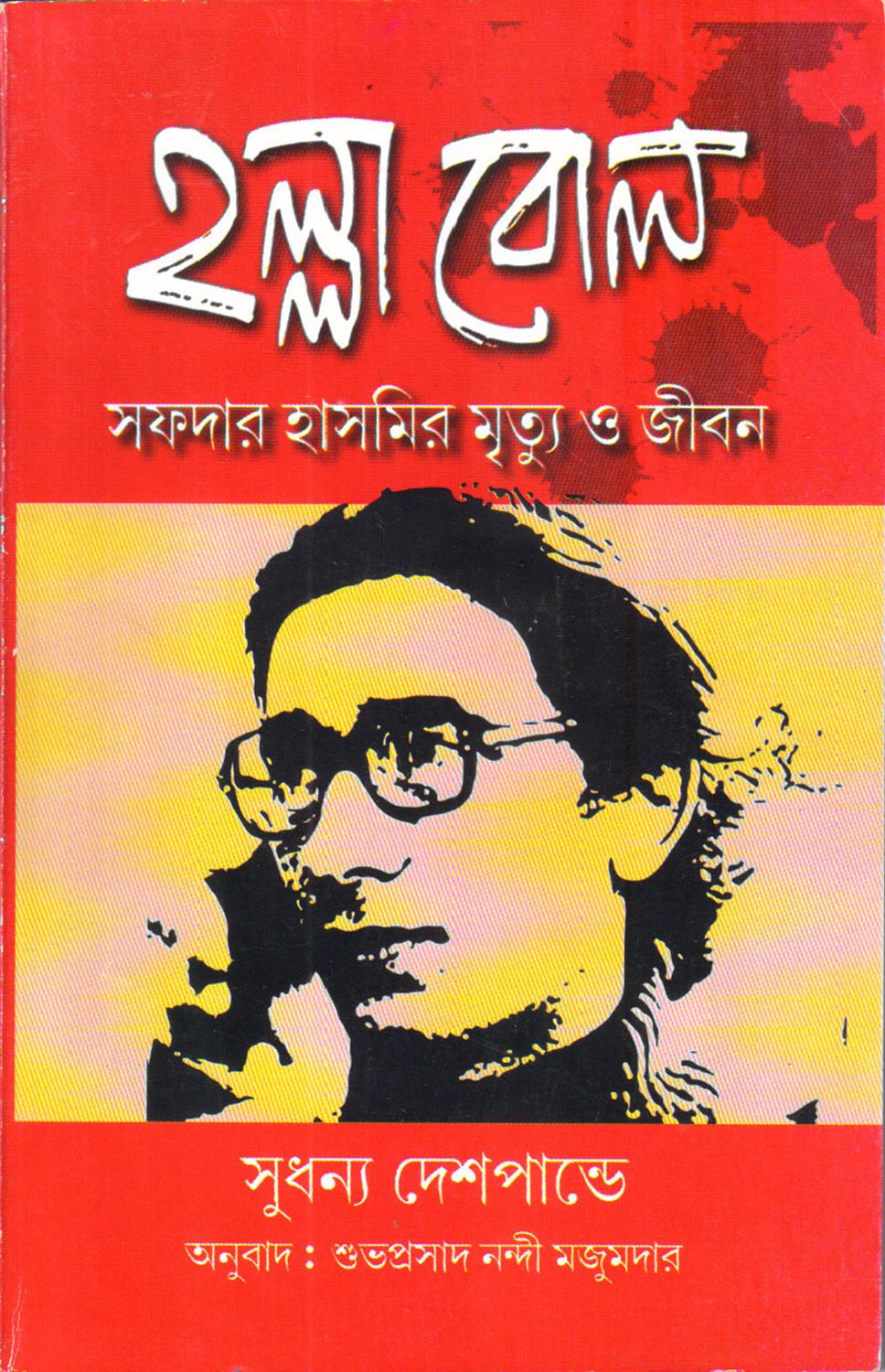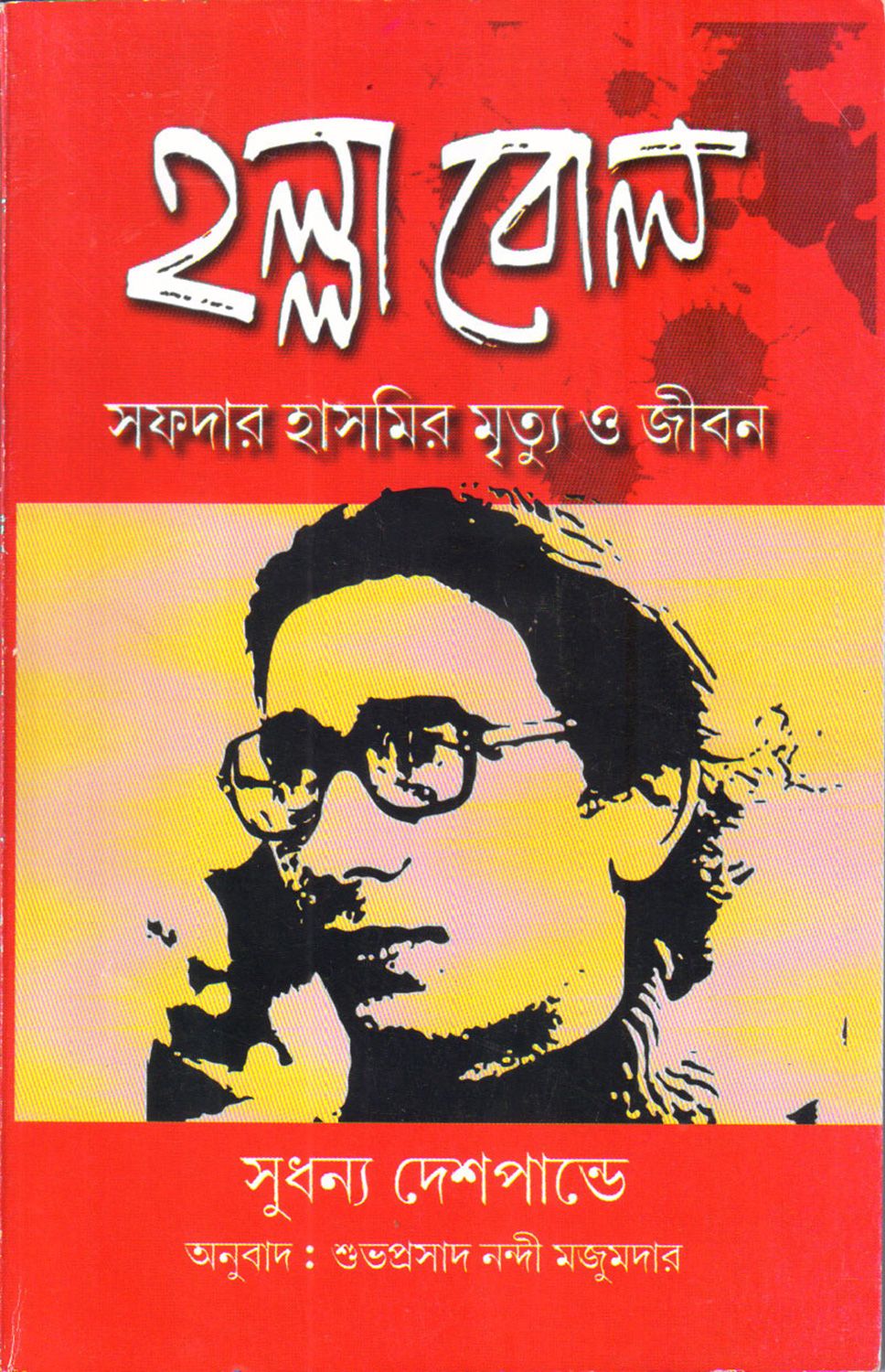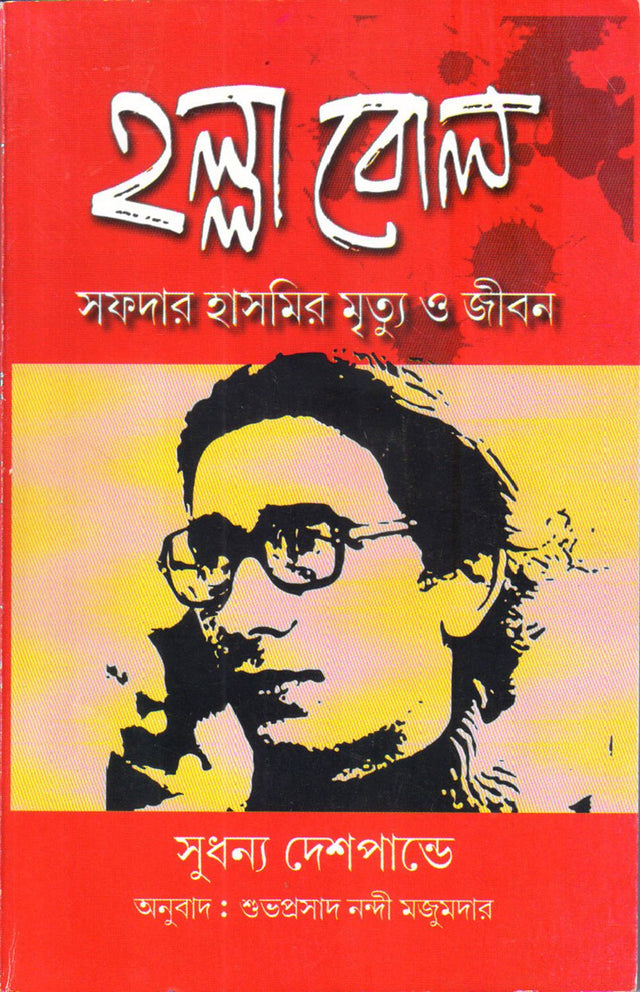Halla Bol: Safder Hasmir Mrityu o Jiban
Halla Bol: Safder Hasmir Mrityu o Jiban is backordered and will ship as soon as it is back in stock.
Couldn't load pickup availability
Genuine Products Guarantee
Genuine Products Guarantee
We guarantee 100% genuine products, and if proven otherwise, we will compensate you with 10 times the product's cost.
Delivery and Shipping
Delivery and Shipping
Products are generally ready for dispatch within 1 day and typically reach you in 3 to 5 days.
-
Author: Sudhanva Deshpande
-
Category: Essays
-
Publisher: National Book Agency Private Limited
-
Language: Bengali
-
First Publication Year: 2022
-
Edition: 1st Edition
-
Binding: Paperback
-
Number of Pages: 228
-
ISBN: 978-93-92593-53-6
About the Book:
-
Theme: The book is a detailed account of the life and tragic death of Safdar Hashmi, a prominent theatre artist, and political activist in India. It reflects on the political climate, the cultural struggle, and the tragic incident that led to his untimely death.
-
Content: Halla Bol explores the brutal murder of Safdar Hashmi and his comrades, his unyielding presence even after death, and his association with the Jana Natya Manch (People's Theatre Front), a revolutionary theatre group. The book also covers Hashmi's contribution to political ideology through his work in theatre and his role as an activist.
-
Purpose: The book, originally written in English by Sudhanva Deshpande and later translated into Bengali by Subhprasad Nandy Majumdar, serves to memorialize Safdar Hashmi's life and work, highlighting his dedication to political and cultural activism. Deshpande, with his thorough research and interviews, provides an exhaustive account of Safdar's life, death, and the legacy he left behind.
-
Significance: This book is an essential read for those interested in Indian political theatre and cultural activism. It sheds light on the life of Safdar Hashmi, whose contributions continue to inspire social and political movements in India. Through meticulous documentation and interviews, the author presents a comprehensive and insightful portrayal of a man whose work transcended mere theatre and became a symbol of resistance and revolution.





